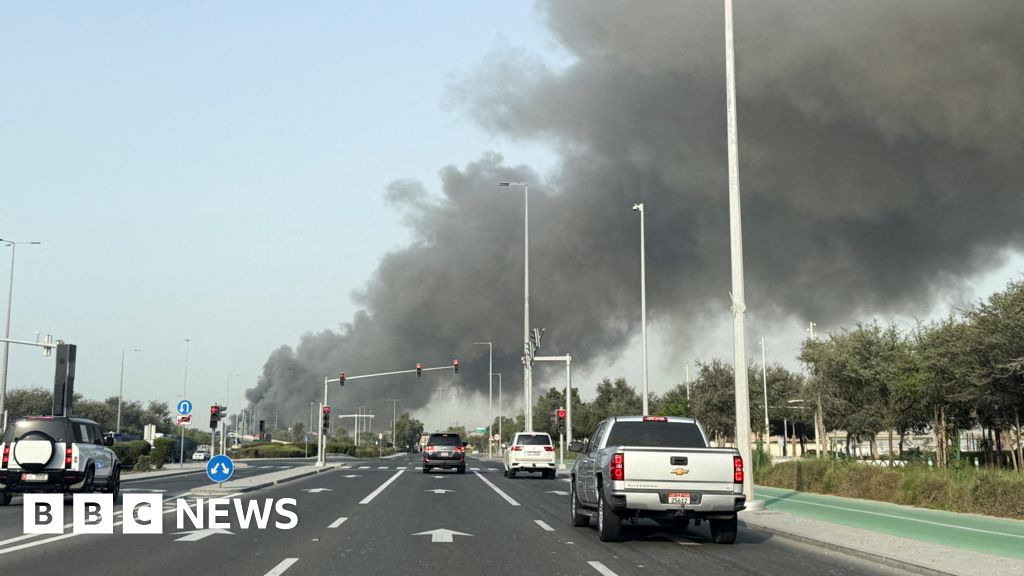More than three years after the start of the Russian attack on Ukraine, international criminal prosecution is gaining momentum.
On Wednesday, the Council of Europe and the Ukrainian government signed an agreement in Strasbourg to establish a special tribunal dedicated to the "crime of aggression" which refers to a largely unpunished violation of international law.
The aim is to hold high-ranking representatives of the Russian leadership, possibly including President Vladimir Putin himself, criminally responsible for the decision to wage war against Ukraine.
"Strong political cooperation is needed to ensure that every Russian war criminal is brought to justice, including Putin," said Ukrainian President Volodymyr Zelenskyy on the sidelines of the signing ceremony in Strasbourg.
Every inch of Russia's war has been documented, stated Kaja Kallas, the EU High Representative for Foreign Affairs and Security Policy on X. "There is no room for doubt — and no room for impunity," she wrote.
Closing a legal loophole
The special tribunal is legally bound by international customary law and resolutions of the UN General Assembly.
It will most likely be based in The Hague and close a gap that the International Criminal Court (ICC), which is also based there, has not yet been able to address: The punishment of the decision to wage aggressive war itself, not just the crimes committed during the war. However, as Russia never ratified the Rome Statute of the ICC, its politicians cannot be directly prosecuted by it at this point.
Still, the new tribunal is just one of numerous attempts to legally prosecute Russia for its war of aggression in Ukraine.
ICC in The Hague: Arrest warrants
In March 2023, the ICC in The Hague issued an arrest warrant against Vladimir Putin for the alleged unlawful deportation of Ukrainian children. The government in Kyiv documented almost 20,000 minors who were deported from Ukraine to Russia in the course of the war.
However, human rights organizations assume that the number of unreported cases is far higher. In 2024, further arrest warrants were issued for then Defense Minister Sergei Shoigu and Russia's General Staff chief, General Valery Gerasimov including for targeted attacks on civilian infrastructure in Ukraine.
ICJ: Russian abuse against genocide convention
In 2022, Ukraine filed a lawsuit against Russia before the International Court of Justice (ICJ).
Unlike the ICC, which is directed against individuals who have committed serious crimes, the ICJ deals exclusively with legal disputes between states, for example over borders or treaty violations. The ICJ is also based in The Hague, but unlike the Criminal Court, it is an organ of the United Nations.
In the specific case, Russia justified its attack on Ukraine in 2022 with an alleged "genocide of Russians" in the Donbas. Ukraine has firmly rejected this accusation. It sees this as a Russian abuse of the international genocide convention and filed a lawsuit. In March 2023, the ICJ confirmed its jurisdiction and the main proceedings are ongoing. However, another lawsuit filed by Kyiv in 2017 against Russia for alleged terrorist financing was largely dismissed by the ICJ in 2024.
 Seveal cases against Russia are pending at the European Court of Human Rights Image: Jean-Francois Badias/dpa/picture alliance
Seveal cases against Russia are pending at the European Court of Human Rights Image: Jean-Francois Badias/dpa/picture allianceECtHR and national proceedings
Several cases are currently pending against Russia at the European Court of Human Rights (ECtHR). One case is in connection with the downing of the MH17 passenger plane over eastern Ukraine in 2014.
Another case refers to the ongoing repression in Crimea since its annexation in the same year. The ECtHR is an organ of the Council of Europe.
In September 2022, Russia avoided the threat of expulsion and left the organization. As a result, new complaints against Russia can no longer be submitted to the ECtHR. Previously submitted complaints are still being heard, however, and judgments in these cases remain legally valid, at least in theory. However, Russia has repeatedly disregarded ECtHR judgments in the past.
In addition, national authorities, for example in Germany, France, Spain and Lithuania, are investigating Russian actors for possible war crimes on the basis of the principle of universal jurisdiction.
The principle of universal jurisdiction is a principle of international law that allows states to prosecute particularly serious crimes even if the perpetrator, victim or crime scene are not located in their own country.
 Russia's President Vladimir Putin enjoys immunity for as long as he holds this positionImage: Olga Maltseva/AFP/Getty Images
Russia's President Vladimir Putin enjoys immunity for as long as he holds this positionImage: Olga Maltseva/AFP/Getty ImagesProceedings likely in absence of the accused
The newly established special tribunal is set to begin its work in the coming months. First, judges and prosecutors must be appointed. However, it is extremely unlikely that it will ever be able to bring defendants such as Vladimir Putin to justice in person.
On the one hand, a trial against Putin would only be possible after the end of his presidency, as sitting heads of state and members of government enjoy immunity. On the other hand, Russia does not recognize international courts and extradition is considered impossible. The proceedings there will therefore in all likelihood only be able to take place in the absence of the accused.
According to the Council of Europe, the tribunal is nevertheless important, for example to gather evidence and prepare charges, and as a blueprint for the legal prosecution of possible future acts of aggression in violation of international law, whether by Russia or other states.
This article was originally published in German.

 8 months ago
9
8 months ago
9








